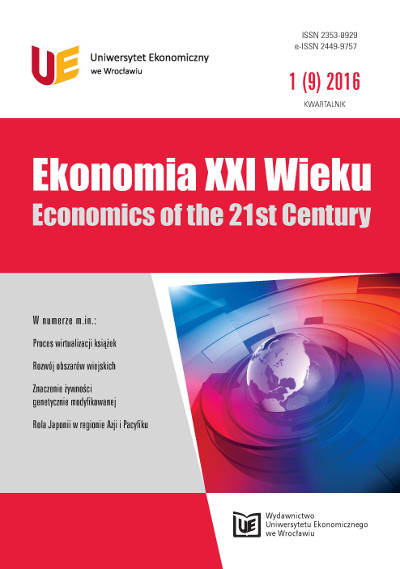Rozwój obszarów wiejskich w kontekście zrównoważonej gospodarki leśnej na przykładzie Regionalnej Dyrekcji Lasów Państwowych (RDLP) Olsztyn
Rural development in the context of sustainable forest management on the example of the Regional Directorate of State Forests in Olsztyn
Author(s): Roman Kisiel, Joanna Zielińska-Szczepkowska, Agata ZielińskaSubject(s): Economy
Published by: Wydawnictwo Uniwersytetu Ekonomicznego we Wrocławiu
Keywords: multifunctional forest management; rural areas; sustainable development
Summary/Abstract: Underdevelopment of rural areas; in spite of many advantages of living there; causes the need of searching for the new directions of the development of these areas. Due to the interaction between the rural area and forest; we can expect that the development of one area will be an opportunity for the other one. This is possible due to the implementation of sustainable development idea; taking place in current transformation of forest management and agriculture. The present policy of rural development in Poland is a significant tool for implementation of forestry-related activities. Therefore; the purpose of this article is to present that the rational forest management can be an instrument of influence on the development of rural areas. In the article; besides the results of a survey that was carried out; Polish and foreign literature; as well as statistical data were used. The empirical material that forms the basis of this work was collected during surveys conducted in 2011 on a sample of 21 representatives of managerial staff from the Regional Directorate of State Forests in Olsztyn. The results of a survey indicate that in the areas where we can find real and economically measurable effects of the implications of the rational forest management principles there are mainly: •• a reduction of unemployment rate by creating jobs directly in forest management; as permanent and seasonal work; •• development of forestry-connected sectors and owing to the fact growth of employment rate in the region (paper industry; furniture; woodworking); •• economic benefits and maintaining traditions associated with gathering undergrowth goods (fruit; mushrooms etc.); •• stable and reliable income to government budgets from forest taxes; •• collaboration with local institutions; associations; institutions in order to co-create strategies; develop plans and environmental awareness; •• support to hunting economy; •• enhance the advantages of the region in the context of the tourist and recreation services. The impact of the forest management is not limited to the described benefits that can be economically measured. We should not forget about a number of other advantages which are delivered for the society indirectly or which are difficult in the valuation; eg. the beauty of the landscape or clean air. In that case; it is worth perceiving a forest not only through the prism of a large area; but also as an economic sector strongly related to the rural development.
Journal: Ekonomia XXI Wieku
- Issue Year: 2016
- Issue No: 09
- Page Range: 136-150
- Page Count: 15
- Language: Polish

